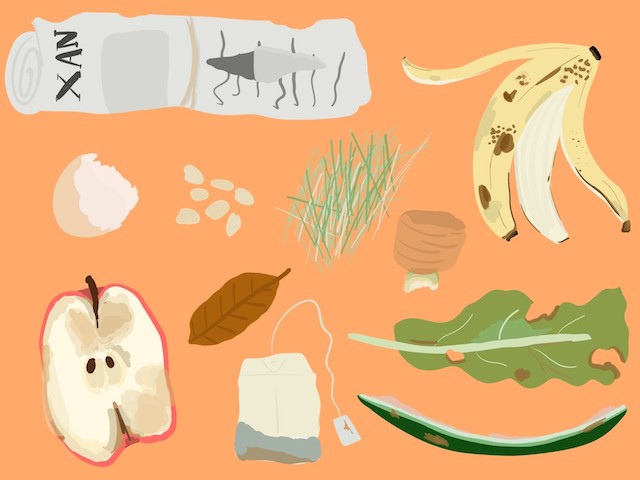UT has promised its students that we would be a zero-waste campus by 2020, meaning 90% of the waste made would either be recycled or composted. However, in 2020, we have only managed to accomplish a mere 42% of that goal.
So, why isn’t the University doing more to live up to its environmental promise?
Providing more options for composting would encourage students to make more sustainable choices while living on campus and move UT closer to its zero-waste goal.
UT needs to install more compost bins around campus with clear, easy-to-read instructions on the bins so that students can start to make bigger steps towards becoming sustainable.
Lindsey Hutchison, senior zero waste coordinator for the Resource Recovery Center, agrees UT should have an accessible compost program.
“We are hoping to roll out composting to campus and make it accessible,” Hutchison said. “We know compost is … a big part of our waste here and a valuable piece of helping achieve zero waste.”
However, currently the Resource Recovery Center is nervous to give the students these bins because the company that they haul compost to, Organics By Gosh, would fine the University if students accidentally placed the wrong item in the wrong bin.
“We recognize that it takes a system solution to implement zero waste and composting,” Hutchison said. “So the solution can't be just on the individual. It also is important that we are responsible about what we're bringing into the system.”
But, clear signs could prevent students from putting the wrong items in compost bins and costing the University extra money, and individuals on campus are willing to do what it takes to save the environment.
Mechanical engineering freshman Katelyn Harvey is a passionate vegan who takes sustainability very seriously.
“I think that if more composting units were possibly installed in more places that would do a little bit in terms of mitigating the waste around campus,” Harvey said. “I think overall that could make some positive change.”
Even if students aren’t active tree huggers, they would most likely still be motivated to do the right thing and read basic instructions on the compost bins.
“I think students would listen as long as they put up signs that said ‘only this food waste goes in this container,’” Harvey said. “I mean it's really the same thing as having trash versus recycling.”
The Campus Environmental Center is a student run organization on campus that dedicates a lot of time and resources to composting efforts. Before the pandemic, they had efficient composting practices that could serve as an example for the University.
“We really love composting, we have it integrated within our system,” said Siddha Sannigrahi, public health senior and external relations director of the CEC. “We're participating in it, we are encouraging others to do it as well, (and) we provide a lot of educational seminars throughout the semester.”
Sannigrahi even says that they created easy-to-read signs the University could use if they created more compost bins.
“Over the summer we were working on improving signage,” Sannigrahi said. “Those were supposed to have very specific pictures of things you find in the dining hall.”
UT can make students aware of what should go in composting bins as students are more than capable of learning what should and should not be composted in order to save the planet. All UT needs to do is provide compost bins and the information for students to make sustainable choices in order to actually “Bleed orange, live green.”
Gomez is a journalism freshman from Lewisville, Texas.





















